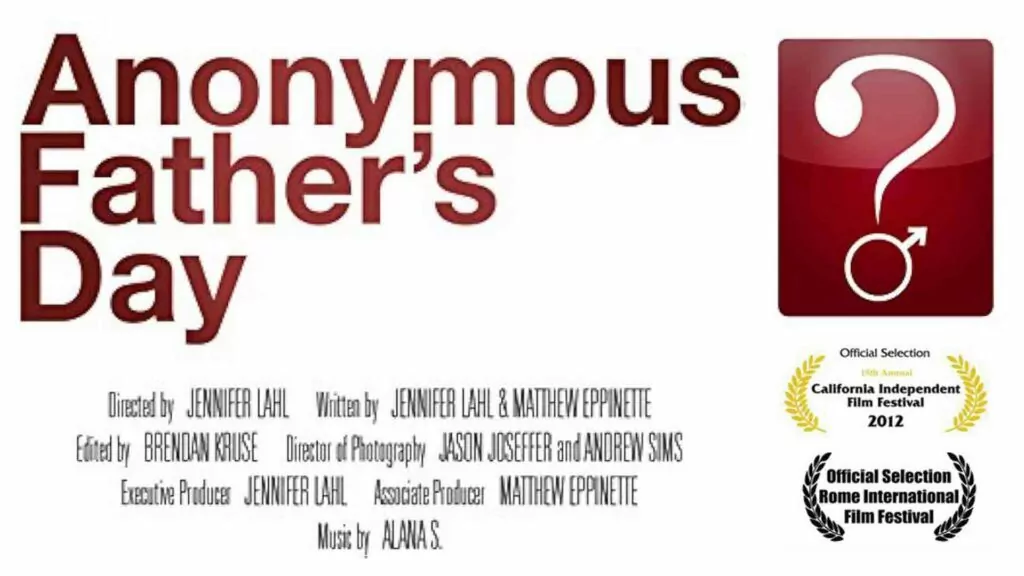I am a Christian.
I am still a sinner.
We could add a whole host of other sentences to describe me, too, but these two would encapsulate the others, I think. For example, I am a Christian and sinful dad; I am a Christian and sinful husband; I am a Christian and sinful employee, etc. I am a Christian, by God’s grace; I am a sinner, in need of a Saviour.
But if I have been redeemed, if I am Christ’s, why then does sin still cling to me? In the Heidelberg Catechism we confess we are “freed from the power of the devil” (Lord’s Day 13) and our old nature is dead and buried so that sin no longer reigns in us, (Lord’s Day 16). So why then am I still a sinner? Why do I still do the things that I do not want to do?
There are two realities working in our lives at the same time (Lord’s Day 21):
- The reality that God, because of Christ’s satisfaction, will no more remember my sins nor my sinful nature against which I have to struggle all my life
- He will graciously grant me the righteousness of Christ that I may never come into condemnation
This is true of all true Christians. We will struggle against our sinful nature all of our lives. There is no escaping it until we pass away.
This, then, must also be true for those who struggle with same-sex attraction: being tempted to sin in this way belongs to our sinful nature and can be a lifelong struggle for many Christians.
Mainstream Christianity’s poisonous response
So if this struggle with sin has been a constant through all time, why is it now that the struggle with same-sex attraction has taken on a life of its own within Christendom? Isn’t it because it has taken on such a significant position in the world? Over the past 150 years, sexuality has become increasingly part of individual identity.
So how is Christendom contending with this issue? How are we explaining to the world, God’s thoughts on our sexuality and our identity? As you might expect compromising churches are doing what compromising churches do. I will begin by outlining two of their responses.
1. Qchristian
There are a number of so-called ministries teaching that Christians can fully embrace an LGBTQ lifestyle and remain faithful Christians. One such ministry is Qchristian, and in a confessional-type document they ask and answer a number of questions that give a summary of some of their main positions:
- Does God affirm LGBTQ+ identities and gender-expansive identities?
Yes - Does God affirm same-gender sexual relationships?
Yes - Who are members of our “Side A” community?
LGBTQ+ Christians who affirm both LGBTQ+ identity and same-gender sex for various personal and/or theological reasons - Who are members of our “Side B” community?
LGBTQ+ Christians who affirm LGBTQ+ identity and who also are committed to refraining from same-gender sex for various personal and/or theological reasons. - What is “Side X” or “Ex-Gay” theology?
This is dangerous and disproven theology that alleges that LGBTQ+ identity can and/or should be changed by God. Q Christian counters this theology…
These questions and answers help us understand some of the main issues at stake. The claims they make are quite outrageous.
To begin, the insistence that God affirms any sexual identities other than male and female, is very difficult to align with Scripture. In fact, there is some evidence that in Christ the only real identifier we need to consider is that we belong to Him (Gal. 3:28). Either we are followers of Christ, or we are not.
When we first learn about marriage, we are taught that a “man shall leave his father and mother and hold fast his wife, and they shall become one flesh” (Gen. 2:24). There is nothing in Scripture that changes this concept of marriage. Throughout Scripture, Israel is described as the Bride of God (Is. 54:5, Ez. 16:8-14, Jer. 31:32); the church as the Bride of Christ (John 3:29, 2 Cor. 1:2, Rev. 19:7-9). Male and female again and again.
Familiar as we are with the ways Scriptures can be twisted, we can perhaps imagine how, through theological gymnastics, some would argue that God does not forbid same-sex physical relationships, which Matthew Vine does in his book God and the Gay Christian. But they are going even further here, insisting that God affirms these relationships, and it really is hard to fathom how, no matter how extensive the squinting or editing they might do to Scripture, they can find any examples of that.
We are introduced here to the Side A and Side B groups that both affirm Christian sexual identity. Many orthodox Christians would not identify a Christian by his temptations, weaknesses, or sins but that is exactly what both Side A and Side BChristians do. The Side B Christians, however, would agree with us that the practice of same-sex physical relationships is forbidden by Scripture. Unfortunately, holding to the Side B position seems to lead to an eventual affirmation of Side A; at a conference in Chicago where these two sides were to meet together, Side A had over 1100 representatives while Side B only had about 46.
Most of our readers would be considered “Side X” by the Qchristian community. Of course, our position is that temptation for same-sex physical relationships has similarities to the temptation for opposite-sex physical relationships. Single people who desire opposite-sex physical intimacy have the same calling to purity as those struggling with same-sex attraction. “God’s grace is sufficient” (2 Cor. 12:9) is not a band-aid solution to help our struggling brothers and sisters, but it is a promise from our faithful Father: despite our struggle, God’s grace is our sure confidence. So, even though we cannot be certain that sexual temptation and desires of any kind will be changed by God in this life, we can know that such sexual temptation does not define us. Our identity is not our sin; we belong to Christ!
2. Reformation Project
Another organization is even more dangerous in its approach. Since Qchristian is “progressive” it may not have much direct impact or reach into conservative Christian churches. However, that cannot be said of the Reformation Project.
This organization, led by Matthew Vines (mentioned earlier), seeks to reform evangelical, conservative churches. They suggest that their work is similar to the work of Luther and other Reformers. The irony is sharp. When one reads Vines’ book, quotations from John Calvin, C.S. Lewis, John Chrysostom, and others are sprinkled throughout.
But Vines pulls threads through his book that do not tie together. As just one example, the chapter on celibacy is quite strong even as its application is quite wrong. We would agree with Vines that celibacy is not commanded or even, generally, considered the better way, but we would vehemently disagree with him that such a conclusion opens the way for those struggling with same-sex attraction to participate in marriage. This approach to Scripture is very dangerous because it sounds so pious but is so blasphemous.
The Reformation Project outlines a Brief Biblical Case for LGBTQ Inclusion. The 10 principles are examples of pious sounding dangerously blasphemous teaching. For the purposes of time and space I’ll share and respond only to the first of them.
1. Experience of sound Christian teaching should show good fruit, not bad fruit
“By their fruit you will recognize them. Do people pick grapes from thornbushes or figs from thistles? Likewise, every good tree bears good fruit, but a bad tree bears bad fruit. A good tree cannot bear bad fruit, and a bad tree cannot bear good fruit. Every tree that does not bear good fruit is cut down and thrown into the fire. Thus, by their fruit you will recognize them” – Matt. 7:16-20.
Further on into their site they then list the fruit they think results from opposition to same-sex intimacy:
….Condemnation of same-sex relationship have created crushing burden of shame on countless LGBTQ Christians’ lives, fostering alienation from God, the church, and family. According to a landmark 2009 study, when families reject their LGBTQ children, their children are 8.4 times more likely to attempt suicide, 5.9 times more likely to have high levels of depression, and 3.4 times more likely to use illegal drugs than LGBTQ children who have supportive families.
A 2018 study found that while religiosity helped to protect against suicidal thoughts and suicide attempts among heterosexual youth, it was associated with significantly higher rates of suicidal thought and suicide attempts among gay, lesbian, and questioning youth. Suicide rates are highest among transgender people; 41% of transgender adults in the Unites States have attempted suicide in their lifetime, compared to only 1.6% of the overall population.
Do we see the logic used? They quote Matt. 7:16-20, but it is when we add verse 15 that the irony becomes all the more clear: “Beware of false prophets, who come to you in sheep’s clothing but inwardly are ravenous wolves.” Matthew Vines dresses in sheep’s clothing, imitating the bleating of sheep, but serves as a ravenous wolf. He wants to serve as a shepherd to Christians struggling with sexual identity, but true sheep know the voice of the Good Shepherd, and His voice is not being echoed by Vines.
When we read the above description and statistics we can see how The Reformation Project determines good fruit and bad fruit – if we do not affirm the sexual identity and orientation of Christians in their struggles the fruit is bad, that is, greater rates of suicide and self-harm. If we do affirm them, the fruit is better with far fewer episodes of attempted suicide and self-harm. Of course, logically if we affirm any sin, the sinner may feel better about him/herself… but then they would never echo the words of King David in Psalms 32:
“For when I kept silent, my bones wasted away through my groaning all day long. For day and night your hand was heavy upon me; my strength was dried up as by the heat of summer.”
As long as the sinner does not acknowledge his sinfulness but rather delights in it, and has others delight in it, too, there will be no repentance. The Reformation Project perverts Scripture to permit LGBTQ lifestyles which God hates. It is so similar to the temptation of the devil in the Garden of Eden; Vines and his supporters are asking Christians, “Did God really say…” and suggesting that faithful churches have had it completely wrong from the beginning.
The Reformation Project and QChristian are providing false compassion and comfort to brothers and sisters struggling with same-sex attraction. There has to be a better biblical way.
A better way
The church of Christ is filled with sinning saints. Every day each one of us needs the Holy Spirit’s powerful work of sanctification in our life because apart from the redeeming work of Christ and the powerful work of the Spirit, we would all be dead in our sins. This is true for those of us who are struggling with pornography, greed, covetousness, same-sex attraction, gambling, excessive drinking, or whatever it might be.
At the same time, we recognize that society’s insistence on identifying us by our sexual desires has taken root and developed fruit in the secular world and that makes sexual sins and temptations all the more challenging. The powerful sexual urges that well up in a person as they are growing up will no doubt be of considerable struggle for those with same-sex attraction, as it is for others. Nevertheless, just as single Christians who experience opposite-sex attraction must remain pure and abide by the word of God, so also those who struggle with same-sex physical attraction must resist the temptation. Nevertheless, having no hope to fulfill those urges can remain a true and real disappointment and loss for those with same-sex attraction.
Therefore, the church also needs to be gracious and compassionate with each other, as members of the Body of Christ. We need to be living out Philippians 2:3, “Do nothing from selfish ambition, but in humility count others more significant than yourselves.” Christians have no stones to throw at others who are struggling to resist sin and temptations. We have no stones to throw at those who have fallen into temptation and repented from their sin. We need to help each other, trust each other, be vulnerable with each other, etc. We are so fearful of one another’s judgements that many of us do not “confess your sins to another and pray for one another…” (James 5:16). We do not trust others because of harmful ways that many in our churches speak about being gay, about homosexuality, and about gender dysphoria. We need to ensure that our criticism and critique of sinful lifestyles is seasoned with salt, garnered in grace. We can offer friendship to those struggling with same-sex attraction, offering to pray with them, visit with them, and letting them experience the blessing of belonging to the communion of saints despite their temptations.
Christians struggling with same-sex attraction ought not to be identified as gay or homosexual but as a brothers and sisters in Christ. The command to love God and our neighbour are the two greatest commandments given to us by Christ. Let us strive to do this with humility and love to the benefit of all those who belong to our Lord, who are members are His Bride, the Church.













